Baby eye rolling and rapid breathing while sleeping can be concerning for parents and caregivers. While these behaviors are often normal, they can also be a sign of a more serious underlying condition. Understanding the causes, symptoms, and treatment options can help parents determine when to seek medical attention for their child.
Normal and Abnormal Eye Movements in Babies
It is common for babies to have eye movements while sleeping, including rolling their eyes, fluttering their eyelids, and even opening their eyes briefly. These behaviors are typically not a cause for concern and are a normal part of the sleep cycle. However, if the eye movements are accompanied by other symptoms such as rapid breathing, jerking movements, or a change in skin color, it may be a sign of a more serious condition.
Key Takeaways
- Baby eye rolling and rapid breathing while sleeping can be normal but may also be a sign of a more serious condition.
- Normal eye movements in babies include rolling, fluttering, and brief eye opening.
- If eye movements are accompanied by other symptoms, it may be a sign of a more serious condition and medical attention should be sought.
Understanding Baby Eye Rolling and Rapid Breathing
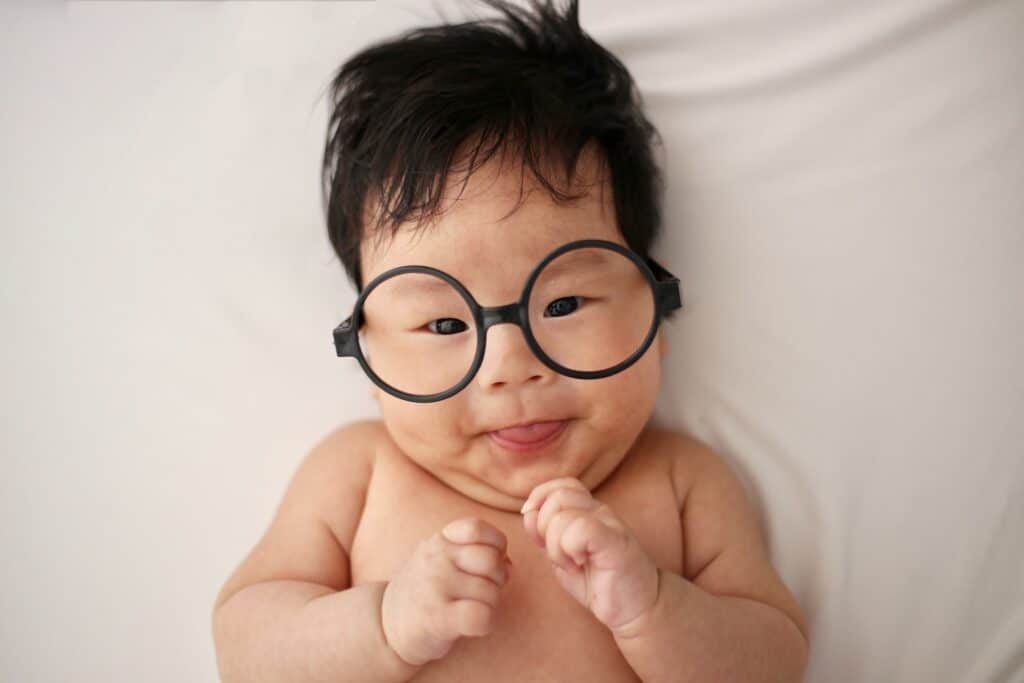
Babies spend most of their time sleeping, and their sleep patterns are different from those of adults. During sleep, babies experience two types of sleep: quiet sleep and active sleep. Active sleep is also known as REM sleep, which stands for Rapid Eye Movement. During REM sleep, babies can experience eye rolling and rapid breathing.
Eye rolling is a common occurrence during REM sleep, and it is caused by the movement of the baby’s eyes behind their closed eyelids. This movement is a normal part of the sleep cycle and is not a cause for concern.
Rapid breathing is also common during REM sleep, and it is caused by the stimulation of the baby’s respiratory system. This stimulation is a normal part of the sleep cycle and helps the baby’s body to regulate its breathing.
It is important to note that while eye rolling and rapid breathing are normal during REM sleep, they can also be a sign of other issues. For example, if a baby is experiencing apnea, which is a pause in breathing during sleep, they may also experience eye rolling and rapid breathing. If you are concerned about your baby’s sleep patterns, it is always best to consult with a pediatrician.
In summary, eye rolling and rapid breathing are normal occurrences during REM sleep in babies. These movements are a natural part of the sleep cycle and are not a cause for concern. However, if you are worried about your baby’s sleep patterns, it is always best to consult with a pediatrician.
Normal and Abnormal Eye Movements in Babies
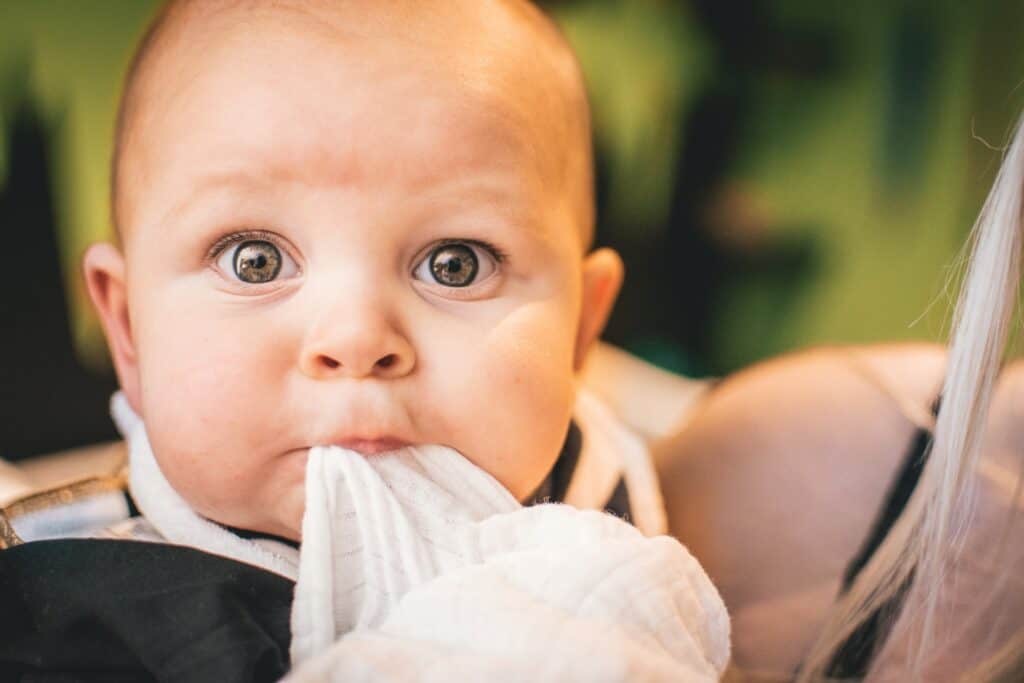
Eye movements in babies are a normal part of their development. Babies’ eyes move rapidly in different directions during REM sleep, and they may also roll their eyes while awake. This is a normal part of their visual development and is not a cause for concern.
However, there are some abnormal eye movements that may indicate a problem with a baby’s eye muscles or vision. Nystagmus is a condition where the eyes move involuntarily, usually in a rhythmic pattern. Strabismus, or crossed eyes, is another condition where the eyes do not align properly. Lazy eye, or amblyopia, is a condition where one eye does not develop properly, leading to poor vision.
If a baby is consistently rolling their eyes or exhibiting abnormal eye movements, it is important to speak with a pediatrician or eye doctor. They can perform an exam to determine if there is an underlying issue that needs to be addressed.
In summary, normal eye movements in babies include rapid eye movements during REM sleep and occasional eye rolling while awake. Abnormal eye movements such as nystagmus, strabismus, and lazy eye may indicate an underlying issue and should be evaluated by a medical professional.
Also, read: Is It Normal for Babies’ Eyes to Roll Back in Their Head
Recognizing Signs and Symptoms
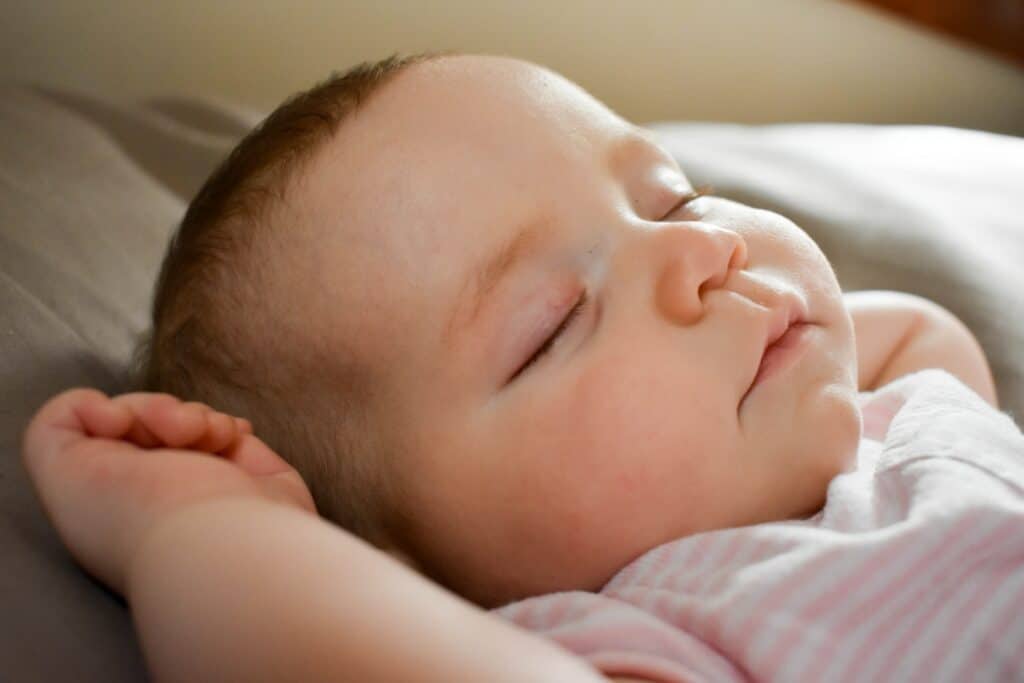
Parents may notice their baby exhibiting certain movements and behaviors while sleeping that could indicate a potential issue. It is important to recognize these signs and symptoms to ensure the baby’s health and safety.
One common sign is eye rolling. If a baby’s eyes roll back while sleeping, it could be a sign of a seizure or other neurological issue. However, it is important to note that some babies may simply roll their eyes during REM sleep, which is a normal occurrence.
Another symptom to watch for is rapid breathing. If a baby is breathing faster than usual, it could be a sign of respiratory distress or other respiratory issues. Parents should monitor their baby’s breathing rate and seek medical attention if it is consistently high.
Jerk or jerky body movements can also be a sign of a potential issue. While some babies may make sudden movements while sleeping, excessive jerking or twitching could be a sign of a seizure or other neurological issue.
Snoring and pauses in breathing are other warning signs to watch for. If a baby is snoring or experiencing pauses in breathing while sleeping, it could be a sign of sleep apnea or other respiratory issues. Parents should monitor their baby’s breathing and seek medical attention if they notice any irregularities.
Overall, parents should be aware of their baby’s movements and behaviors while sleeping and seek medical attention if they notice any concerning signs or symptoms.
Understanding Rapid Breathing in Babies
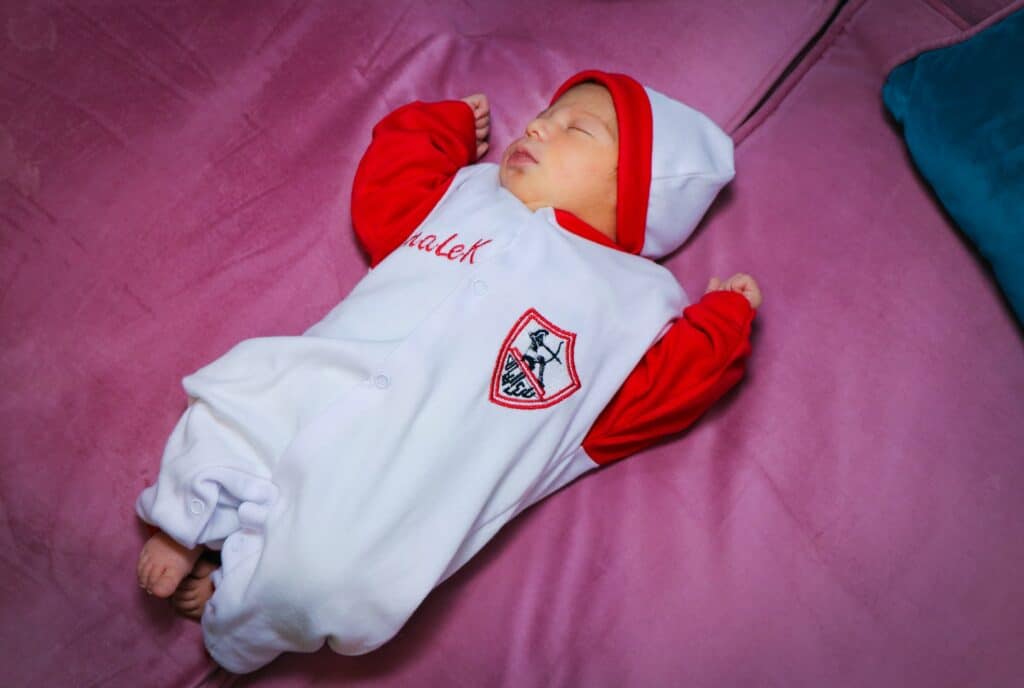
Rapid breathing is a common occurrence in babies, especially during sleep. It is often accompanied by eye rolling, which can be concerning for parents. However, it is important to understand that this is a normal physiological process that occurs in infants.
1. Breathing Patterns in Babies
Babies have a different breathing pattern compared to adults. They breathe faster and more irregularly, with periods of rapid breathing followed by periods of slower breathing. This is known as periodic breathing of infancy and is a normal phenomenon in newborns.
2. Rapid Eye Movement and Breathing
During sleep, babies enter into a state of rapid eye movement (REM) sleep, which is characterized by rapid eye movements and increased brain activity. During this stage, babies may exhibit rapid breathing and irregular breathing patterns.
3. Causes of Rapid Breathing
Rapid breathing in babies can be caused by a variety of factors, including dehydration, fever, and respiratory infections. However, in most cases, it is a normal physiological process and not a cause for concern.
4. Transient Tachypnea of the Newborn
Transient tachypnea of the newborn (TTN) is a condition that can cause rapid breathing in newborns. It occurs when the baby’s lungs are not fully cleared of fluid after birth. TTN is usually mild and resolves on its own within a few days.
5. Apnea
Apnea is a condition where a person stops breathing for a period of time. In babies, it is often caused by a delay in the development of the central nervous system. Apnea can be a serious condition and requires medical attention.
In conclusion, rapid breathing in babies is a normal physiological process that occurs during sleep. It is often accompanied by eye rolling and is not usually a cause for concern. However, if parents are concerned about their baby’s breathing, they should seek medical attention.
Potential Causes and Risk Factors
There are several potential causes and risk factors associated with baby eye rolling and rapid breathing while sleeping. Some of the most common causes are discussed below.
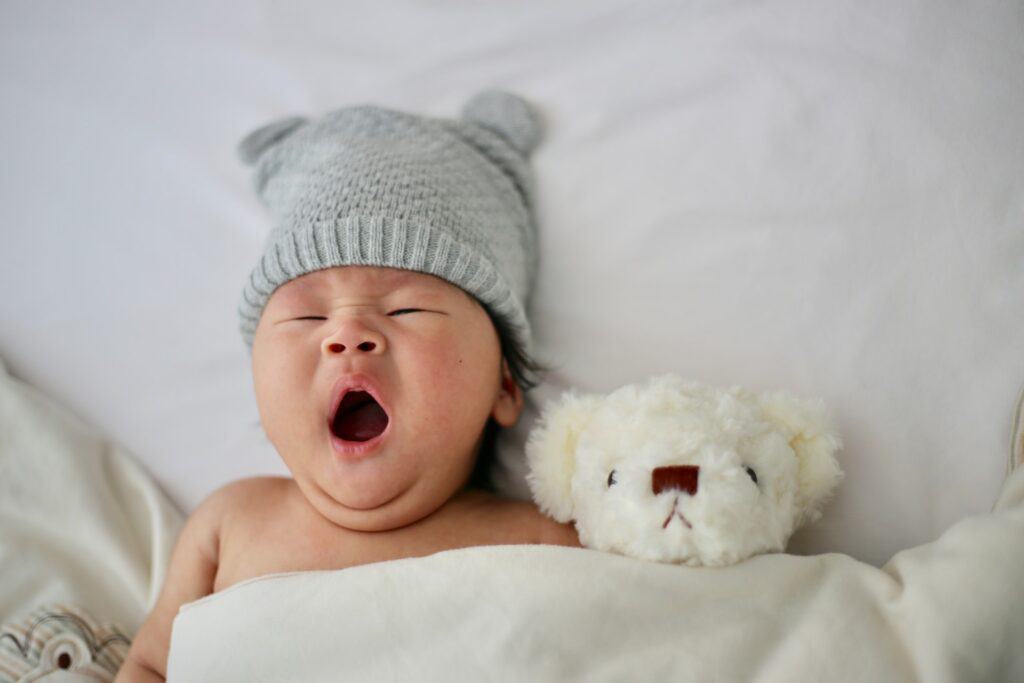
1. Abnormal Eye Movements
Abnormal eye movements can be caused by a number of factors, including seizures, epilepsy, and genetic conditions. These conditions can cause the eyes to move rapidly back and forth, up and down, or in circles. In some cases, abnormal eye movements may be a sign of a more serious underlying condition, such as cerebral palsy or Down syndrome.
2. Infection
Infections, such as meningitis, can also cause eye rolling and rapid breathing in babies. These infections can be serious and require immediate medical attention. Other symptoms of infection may include fever, lethargy, and irritability.
3. Seizures
Seizures are another potential cause of eye rolling and rapid breathing in babies. Seizures can be caused by a variety of factors, including high blood pressure, hypoglycemia, and head injuries. In some cases, seizures may be a sign of a more serious underlying condition, such as epilepsy.
4. Genetic Conditions
Certain genetic conditions, such as Down syndrome, can also cause eye rolling and rapid breathing in babies. These conditions can affect the development of the brain and nervous system, leading to a range of symptoms.
5. Other Risk Factors
Other risk factors for eye rolling and rapid breathing in babies may include prematurity, low birth weight, and a family history of seizures or epilepsy. It is important to note that not all babies who experience these symptoms will have an underlying medical condition, and many will outgrow them over time.
Overall, it is important to seek medical attention if you notice your baby experiencing eye rolling and rapid breathing while sleeping, especially if they are accompanied by other symptoms. A healthcare provider can help determine the underlying cause and provide appropriate treatment.
When to Seek Medical Attention
While baby eye rolling and rapid breathing while sleeping are common, there are certain situations where parents should seek medical attention. It is important to remember that early diagnosis and treatment can prevent serious health complications.
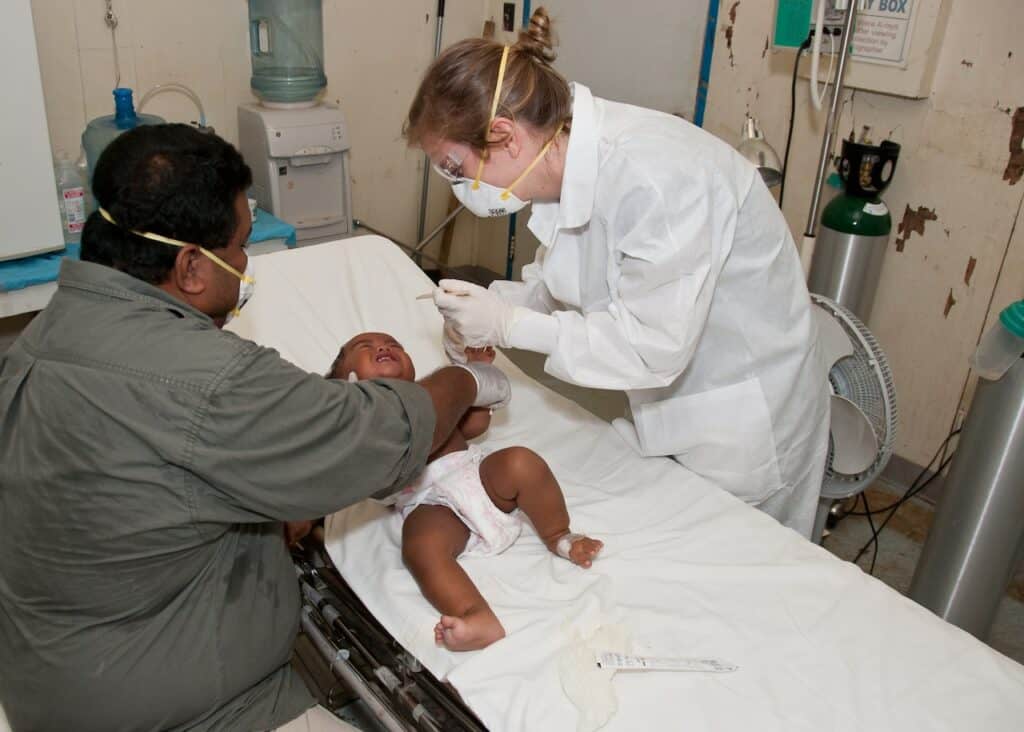
If your baby experiences any of the following symptoms, it is recommended to seek medical attention immediately:
-
Breathing difficulties: If your baby’s breathing becomes labored, fast, or shallow, it may be a sign of a respiratory infection or other underlying medical condition. Seek medical attention right away if you notice any of these symptoms.
-
Persistent eye rolling: While occasional eye rolling is normal, persistent eye rolling can be a sign of a seizure disorder or other neurological condition. If your baby’s eye rolling is accompanied by other symptoms, such as jerking movements or loss of consciousness, seek medical attention immediately.
-
Cyanosis: Cyanosis is a bluish discoloration of the skin and mucous membranes that occurs when there is not enough oxygen in the blood. If your baby’s lips, tongue, or skin turn blue, seek medical attention immediately.
Parents should also seek medical attention if they have concerns about their baby’s overall health or development. A healthcare provider or pediatrician can help determine if there is an underlying medical condition that needs to be addressed.
In some cases, parents may need to take their baby to the emergency room for immediate medical attention. If your baby is unresponsive, has difficulty breathing, or has a seizure, call 911 or go to the nearest emergency room right away.
Remember, it is always better to err on the side of caution when it comes to your baby’s health. If you have any concerns about your baby’s eye rolling or rapid breathing while sleeping, seek medical attention as soon as possible.
Diagnosis and Treatment Options
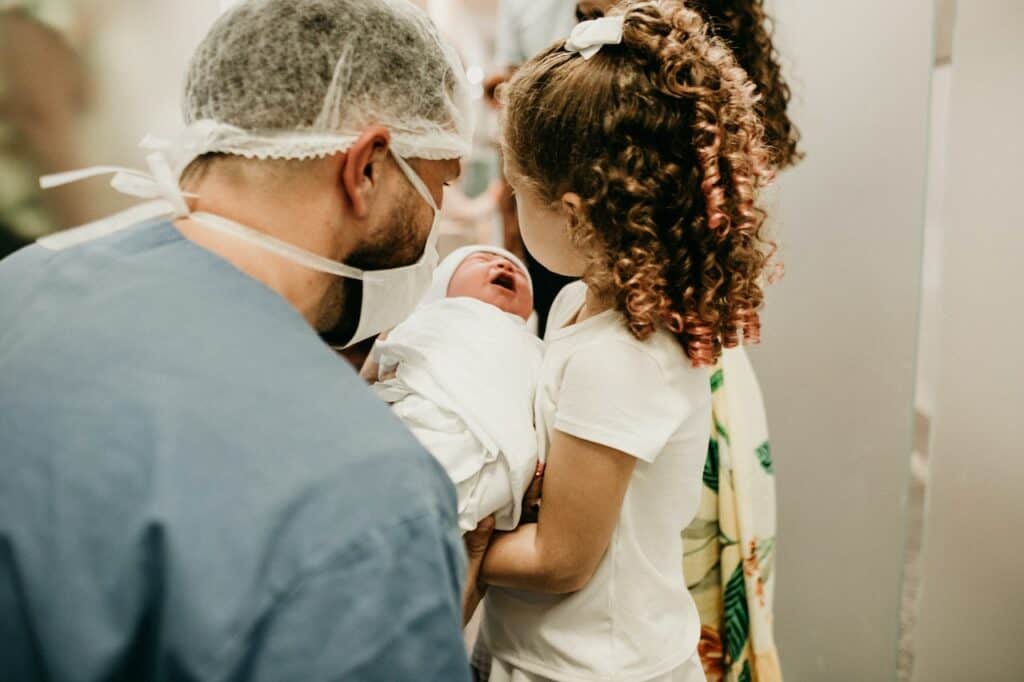
When a baby experiences eye rolling and rapid breathing while sleeping, it is important to seek medical attention to determine the underlying cause and receive appropriate treatment. The diagnosis process may involve a physical exam, medical history review, and diagnostic tests such as blood tests, imaging studies, or sleep studies.
The treatment options for baby eye rolling and rapid breathing while sleeping depend on the underlying cause. In some cases, no treatment may be required as the symptoms may resolve on their own. However, if a medical condition is identified, treatment may involve medications, lifestyle changes, or surgery.
The American Academy of Pediatrics recommends that parents should always place their infants to sleep on their backs to reduce the risk of sudden infant death syndrome (SIDS). Additionally, parents should ensure that their infants sleep in a safe and comfortable environment without any potential hazards.
If the symptoms persist or worsen, it is important to consult with a pediatrician or a specialist to determine the appropriate course of treatment. Surgery may be necessary in rare cases where there is an underlying structural abnormality that is causing the symptoms.
In conclusion, baby eye rolling and rapid breathing while sleeping can be concerning for parents, but with proper diagnosis and treatment, most cases can be effectively managed. Parents should seek medical attention promptly and follow the recommended guidelines to ensure their baby’s safety and well-being.
Understanding Infantile Spasms and West Syndrome
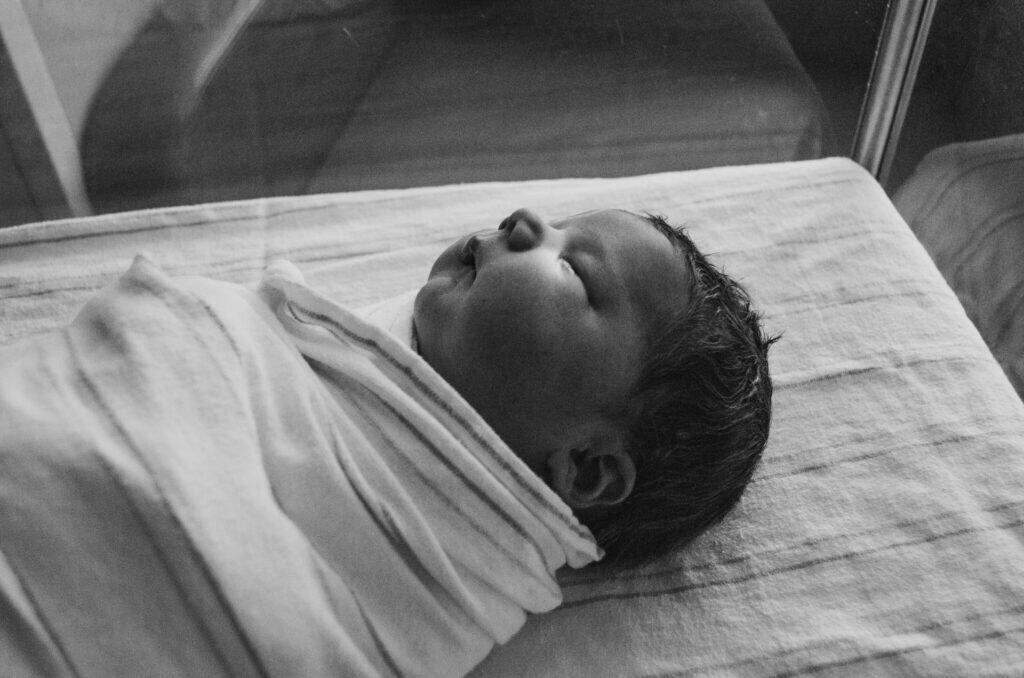
Infantile spasms, also known as West Syndrome, is a rare type of seizure disorder that occurs in infants and young children. It is characterized by a specific type of seizure called a spasm, which involves a sudden stiffening of the arms, legs, or neck. These spasms can occur in clusters, and may cause the baby’s head to drop forward or backward.
Infantile spasms can be difficult to diagnose, as they often occur during sleep or when the baby is relaxed. They may be mistaken for other types of movements, such as startles or twitches. However, if left untreated, infantile spasms can lead to developmental delays and cognitive impairment.
The exact cause of infantile spasms is unknown, but it is thought to be related to abnormal brain development. It may also be associated with genetic or metabolic disorders. Some babies may be more susceptible to infantile spasms due to a family history of seizures or other neurological conditions.
Treatment for infantile spasms typically involves a combination of medication and behavioral therapy. Anti-seizure medications such as ACTH or vigabatrin may be used to control the spasms. Behavioral therapy, such as physical therapy or occupational therapy, can help improve muscle tone and control.
It is important to seek medical attention if you suspect your baby is experiencing infantile spasms. Early diagnosis and treatment can help prevent long-term complications and improve outcomes.
Important Facts to Keep in Mind
When it comes to baby eye rolling and rapid breathing while sleeping, there are a few important facts that parents should keep in mind.
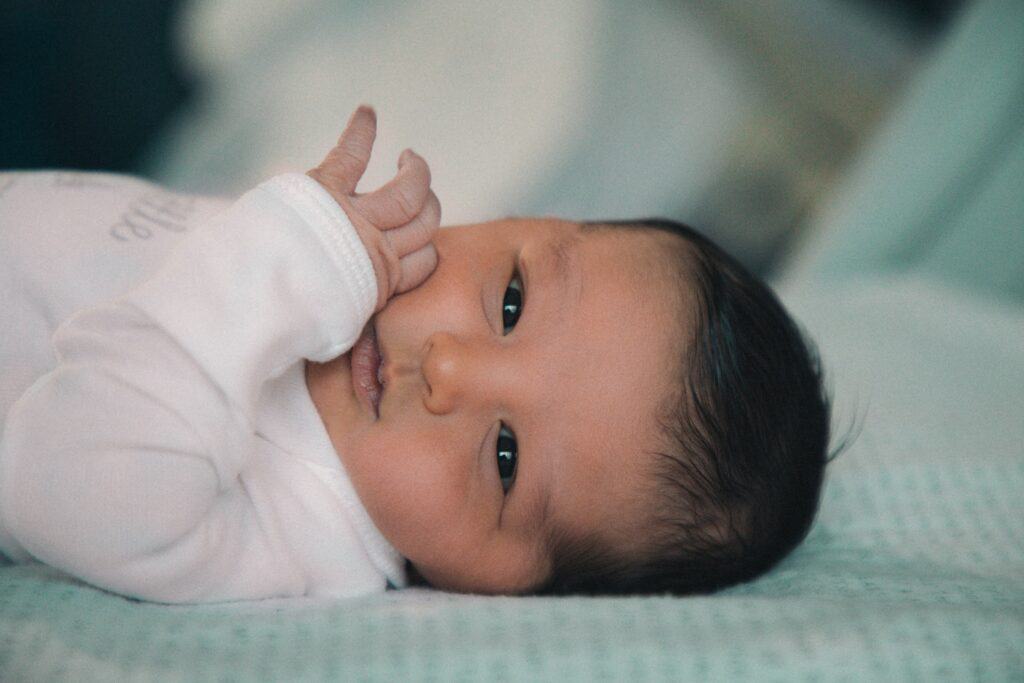
1. Facts
First and foremost, it is important to understand that newborns have immature nervous systems, which can lead to some unusual breathing patterns and movements during sleep. This is completely normal and usually nothing to worry about.
Additionally, it is important to note that eye rolling and rapid breathing while sleeping can sometimes be a sign of a more serious medical condition, such as sleep apnea or seizures. If you are concerned about your baby’s breathing or movements during sleep, it is always best to talk to your pediatrician.
2. Common
Eye rolling and rapid breathing while sleeping are actually quite common in newborns. In fact, many parents report seeing their babies make strange movements or noises while sleeping.
It is also common for these movements and noises to decrease as the baby gets older and their nervous system matures. However, if you notice any changes or worsening of symptoms, it is important to seek medical attention.
3. Newborns
Finally, it is important to remember that newborns have different sleep patterns than adults. They may spend more time in REM sleep, which is associated with more active brain activity and movement.
It is also normal for newborns to have irregular sleep patterns and to wake frequently throughout the night. While it can be exhausting for parents, it is important to remember that this is a normal part of a baby’s development.
Overall, while eye rolling and rapid breathing while sleeping can be concerning for parents, it is important to keep in mind that they are often normal and nothing to worry about. However, if you have any concerns or notice any changes in your baby’s sleep patterns, it is always best to talk to your pediatrician.
Related Posts:
Frequently Asked Questions
Why do newborns’ eyes roll back while sleeping?
Newborns’ eyes may roll back while sleeping because their eye muscles are not yet fully developed. This is a normal part of their development and is not a cause for concern.
What causes rapid eye movement in babies while sleeping?
Rapid eye movement (REM) is a normal stage of sleep and is important for brain development. Babies spend a lot of time in REM sleep, which can cause their eyes to move rapidly while sleeping.
Is it normal for babies to roll their eyes downwards?
Yes, it is normal for babies to roll their eyes downwards while sleeping. This is because their eye muscles are not fully developed and they are not yet able to control their eye movements.
Why does my baby sound like they’re hyperventilating while sleeping?
Babies may sound like they’re hyperventilating while sleeping because they have a faster breathing rate than adults. This is normal and helps them get enough oxygen while they sleep.
What are the common causes of fast breathing in babies while sleeping?
Fast breathing in babies while sleeping can be caused by a number of factors, including fever, respiratory infections, and sleep apnea. It is important to monitor your baby’s breathing and seek medical attention if you are concerned.
When should I be concerned about my baby’s eye movements while sleeping?
If your baby’s eye movements while sleeping are accompanied by other symptoms, such as excessive crying or difficulty breathing, it may be a sign of a more serious condition. It is important to talk to your pediatrician if you are concerned about your baby’s eye movements or any other symptoms.

Iesha is a loving mother of 2 beautiful children. She’s an active parent who enjoys indoor and outdoor adventures with her family. Her mission is to share practical and realistic parenting advice to help the parenting community becoming stronger.
